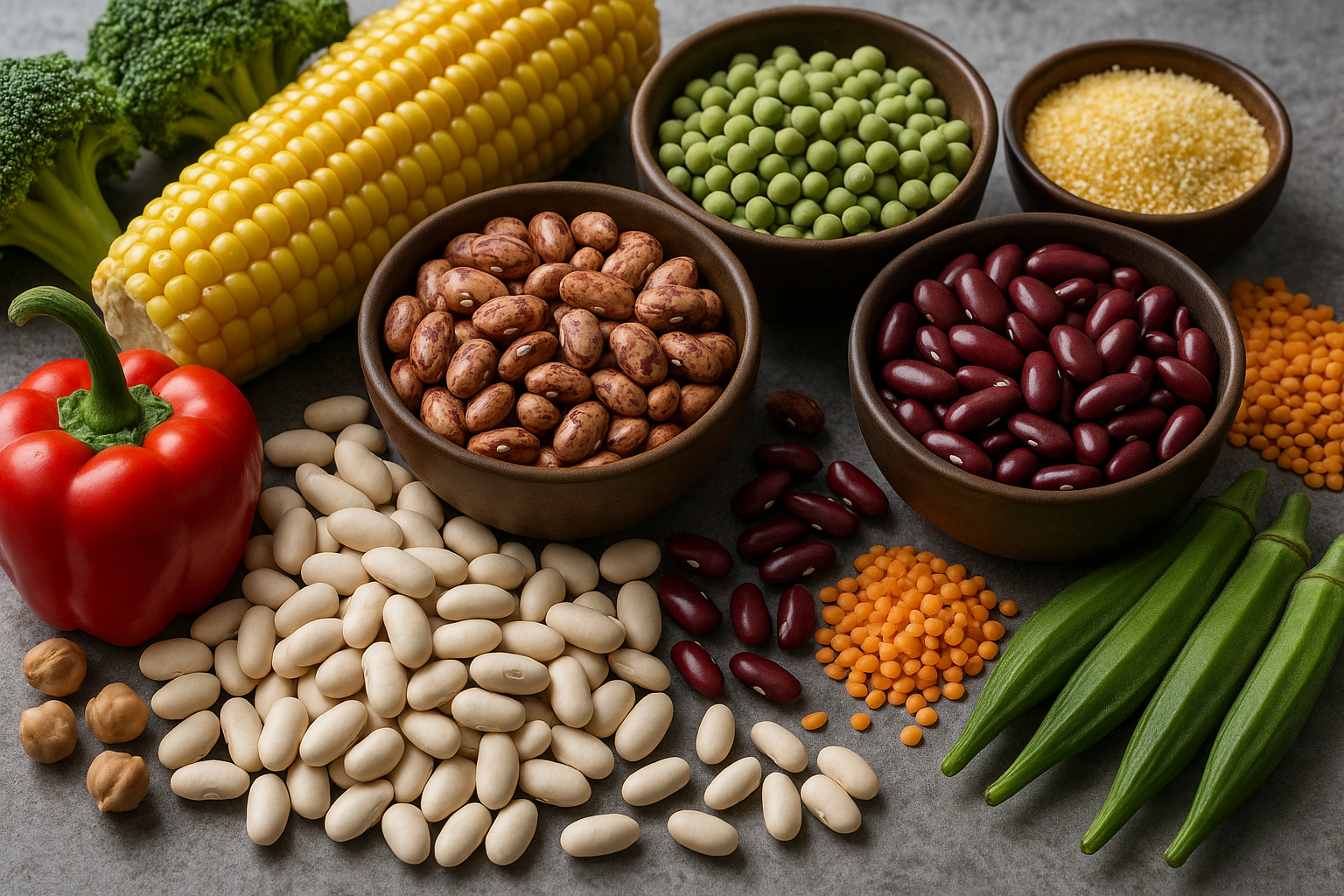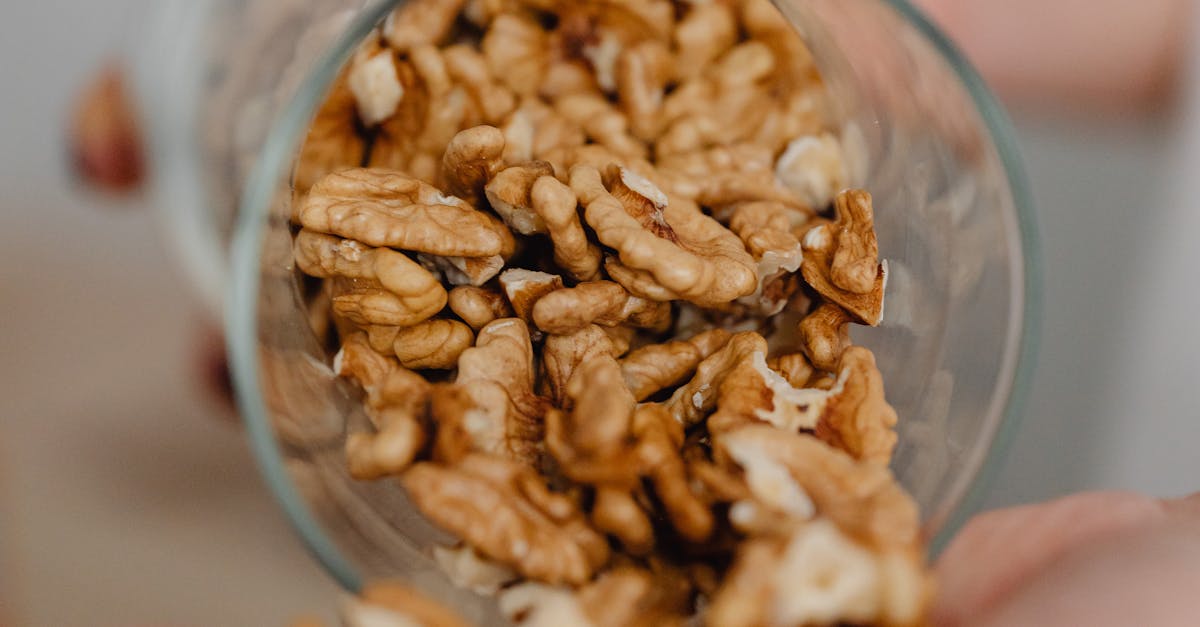Beyond the Usual Suspects: Surprising Dietary Triggers for Autoimmune Flares
Autoimmune diseases, characterized by the immune system mistakenly attacking the body's own cells, have long been associated with certain dietary triggers. While gluten and dairy often take the spotlight, there exists a myriad of less obvious dietary elements that could exacerbate autoimmune conditions. This article delves into surprising dietary triggers that may contribute to autoimmune flares, highlighting the importance of understanding these hidden culprits. By broadening the scope beyond the usual suspects, we aim to provide insights that empower individuals to make informed dietary choices, potentially alleviating the severity and frequency of autoimmune flares.
Nightshade Vegetables: More Than Meets the Eye

Nightshade vegetables, including tomatoes, potatoes, eggplants, and peppers, are staples in many diets. However, they contain alkaloids, which can provoke inflammation in susceptible individuals. For those with autoimmune conditions, these compounds may exacerbate symptoms by increasing intestinal permeability and triggering immune responses. Recent studies suggest that eliminating or reducing nightshade intake can lead to significant improvements in symptoms for some autoimmune sufferers. This section explores the biochemical interactions between nightshades and the immune system, offering insights into how these vegetables might be stealthily contributing to autoimmune flares.
The Role of Lectins: A Double-Edged Sword

Lectins are proteins found in a variety of foods, including grains, legumes, and some fruits and vegetables. While they play a role in plant defense mechanisms, in humans, they can bind to cell membranes and disrupt normal cellular function. This binding can lead to increased gut permeability, often referred to as "leaky gut," which is a known precursor for autoimmune responses. This section examines how lectins can act as hidden dietary triggers, particularly for those with compromised gut health, and discusses strategies for minimizing their impact through cooking methods and dietary adjustments.
Artificial Sweeteners: Sweetness with a Side of Inflammation

Artificial sweeteners are often marketed as healthier alternatives to sugar, yet they may pose risks for individuals with autoimmune diseases. Research indicates that artificial sweeteners like aspartame and sucralose can alter gut microbiota composition, potentially leading to dysbiosis and inflammation. These changes in gut health can trigger or worsen autoimmune flares. This section delves into the mechanisms by which artificial sweeteners can influence immune responses and underscores the importance of considering natural sweeteners or reducing overall sweetener consumption as part of an autoimmune-friendly diet.
Emulsifiers in Processed Foods: Hidden Agitators

Emulsifiers are additives used to stabilize processed foods, ensuring a smooth and uniform texture. Commonly found in items like salad dressings, ice cream, and baked goods, these substances can disrupt gut microbiota and enhance intestinal permeability. Studies have shown that emulsifiers like polysorbate 80 and carboxymethylcellulose can provoke inflammatory responses in the gut, potentially triggering autoimmune flares. This section explores the impact of emulsifiers on gut health and immune function, offering guidance on identifying and avoiding these additives to reduce autoimmune risk.
The Impact of Red Meat: Balancing Nutrients and Risks

While red meat is a rich source of protein and essential nutrients like iron and vitamin B12, its consumption has been linked to increased inflammation in some individuals. The presence of saturated fats and advanced glycation end-products (AGEs), formed during cooking, can stimulate inflammatory pathways. For those with autoimmune conditions, these inflammatory triggers may exacerbate symptoms. This section examines the complex relationship between red meat consumption and autoimmune health, providing insights into how moderation and cooking methods can mitigate potential risks.
Coffee: A Double-Edged Brew

Coffee, a beloved beverage worldwide, contains bioactive compounds that can have both beneficial and detrimental effects on health. While moderate coffee consumption is associated with reduced risk of certain diseases, its high caffeine content can increase stress hormone levels, potentially triggering autoimmune flares. Additionally, coffee's acidic nature may irritate the digestive tract, further complicating autoimmune conditions. This section explores the nuanced relationship between coffee and autoimmune health, offering guidance on how to enjoy coffee while minimizing its potential adverse effects.
Alcohol: Beyond the Obvious

Alcohol consumption is a well-known health concern, but its impact on autoimmune diseases is often overlooked. Alcohol can alter immune function, increase gut permeability, and disrupt the balance of gut microbiota, all of which can exacerbate autoimmune symptoms. This section investigates the mechanisms by which alcohol can contribute to autoimmune flares and discusses the importance of moderation or abstinence for those managing autoimmune conditions, emphasizing the need for personalized approaches based on individual tolerance and disease state.
The Influence of Spices: Friend or Foe?

Spices are celebrated for their health benefits, including anti-inflammatory and antioxidant properties. However, certain spices can trigger adverse reactions in individuals with autoimmune diseases. For example, some people may experience sensitivities to spices like turmeric or black pepper, which can provoke immune responses or interact with medications. This section explores the dual nature of spices in autoimmune health, highlighting the importance of personalized spice selection and the potential benefits of incorporating anti-inflammatory spices into the diet.
Fermented Foods: Balancing Benefits and Risks

Fermented foods, rich in probiotics, are often recommended for gut health. However, for individuals with autoimmune conditions, the high histamine content in fermented foods can trigger immune responses and exacerbate symptoms. This section examines the complex relationship between fermented foods and autoimmune health, discussing the potential benefits of probiotics alongside the risks associated with histamine intolerance. Guidance is provided on selecting low-histamine options and gradually introducing fermented foods to support gut health without triggering flares.
Omega-6 Fatty Acids: The Inflammation Connection

Omega-6 fatty acids, found in vegetable oils and processed foods, are essential for health but can promote inflammation when consumed in excess relative to omega-3 fatty acids. This imbalance can exacerbate autoimmune conditions by enhancing inflammatory pathways. This section explores the role of omega-6 fatty acids in autoimmune flares, discussing the importance of achieving a balanced ratio of omega-3 to omega-6 fatty acids through dietary choices. Strategies for reducing omega-6 intake and increasing omega-3 sources are provided to support autoimmune health.
Empowering Dietary Choices for Autoimmune Health

Understanding the surprising dietary triggers for autoimmune flares is crucial for managing these complex conditions. By expanding our focus beyond the usual suspects, individuals can make informed dietary choices that may alleviate symptoms and improve quality of life. This article has explored a range of hidden triggers, from nightshade vegetables and lectins to artificial sweeteners and emulsifiers, providing a comprehensive overview of how diet influences autoimmune health. Empowered with this knowledge, individuals can work with healthcare professionals to tailor their diets, fostering a proactive approach to managing autoimmune diseases.